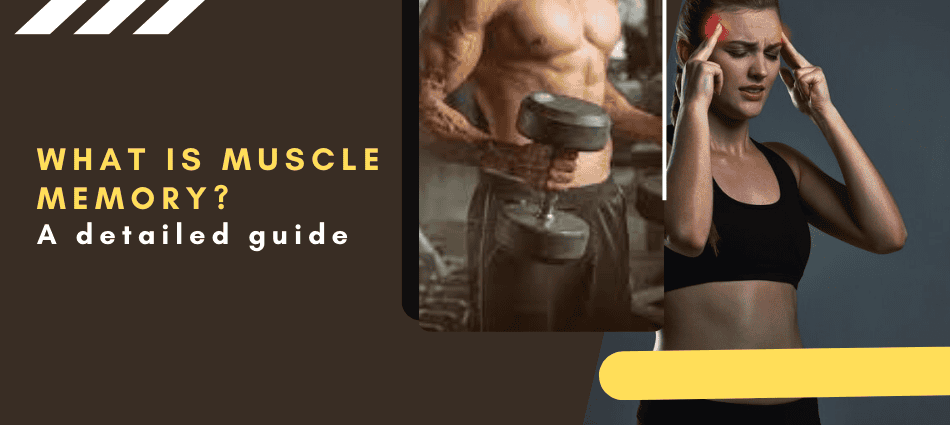What is muscle memory? A detailed guide
Have you ever stopped working out and noticed that when you start again, your muscles grow back faster? This is because of muscle memory. Your muscles don’t actually “remember,” but they keep important changes from past training. This makes it easier to regain strength and size after a break. Whether you stopped exercising due to injury, a busy schedule, or simply lost motivation, muscle memory helps you bounce back quickly. In this guide, we’ll explore how it works, its benefits, and how long it lasts.
Muscle memory
Muscle memory is when your muscles regain size and strength faster after a break from training. If you stop working out and lose muscle, it comes back quicker when you start again. This happens because your muscles remember past training.
How does muscle memory work?
Muscle memory helps your muscles grow back faster after a break from training. When you lift weights or do resistance exercises, your muscles change at a cellular level. They develop tiny structures called myonuclei, which help them grow and adapt. Even if you stop training and lose muscle size, these myonuclei stay in place. This makes it easier for your muscles to get stronger again when you start working out. Scientists are still studying exactly how long these changes last, but research suggests that muscles can “remember” past training for a long time. This is why people who return to exercise after a break often regain strength much faster than beginners.
Benefits of Muscle Memory
- Faster Muscle Growth – If you stop training and lose muscle, your body can rebuild it quicker when you start again.
- Easier Comeback – After a break from exercise, you don’t have to start from zero. Your muscles remember past training and regain strength faster.
- Helpful for Injuries – If you stop working out due to injury or illness, muscle memory helps you bounce back quicker once you recover.
- Long-Term Effects – Even after months of not training, your muscles still hold onto past strength, making it easier to get fit again.
- Encourages Consistency – Knowing that your progress isn’t lost forever can keep you motivated to return to training after time off.
Limitations of Muscle Memory
- Not Permanent – Scientists are unsure how long muscle memory lasts. Some believe myonuclei stay for a long time, while others think they fade over time. More research is needed.
- Not True Memory – Muscles don’t actually “remember” anything. The brain controls movement, not the muscles themselves
- More Studies Needed – Experts still debate how muscle regrowth works and how long past training benefits last.
- Not the Same as Motor Skills – Riding a bike after years feels easy because of brain memory, not muscle memory. Lifting weights again after a break is different.
- Neural Component – Even though muscles don’t store memory, trained people regain strength faster because their nervous system adapts quickly.
Conclusion
Muscle memory makes it easier to regain strength after a break from training. Even if you stop working out, your muscles can grow back faster when you start again. This helps people recover from injuries, stay motivated, and make quicker progress. However, scientists are still studying how long these effects last. While muscles don’t truly “remember,” past training makes a comeback much easier. Keeping a consistent workout routine is still the best way to maintain strength and fitness.
FAQs
How long does muscle memory last?
Scientists don’t know exactly how long muscle memory lasts. Some studies suggest it can stay for 12 to 22 weeks, while older research says it may last for 15 years. The length of time depends on how often and how hard you exercise.
Does everyone have muscle memory?
Yes, everyone can develop muscle memory. Some people may regain strength faster than others, especially athletes. While you can build muscle memory at any age, starting young may help prevent muscle loss later in life.
Is it easier to rebuild lost muscle?
Yes, regaining muscle is easier than building it from scratch. Your body remembers past training and adapts faster, helping muscles grow back more quickly.
How can you fix bad muscle memory?
Muscle memory fades if you don’t practice, but you can fix it. The best way is to repeat the right movements, slowly improve your technique, and get feedback to correct mistakes. Relearning is usually faster than learning for the first time.
What controls muscle memory?
Muscle memory is controlled by the brain. The motor cortex helps plan and send movement signals to the muscles. The basal ganglia, a deep part of the brain, also helps with movement and skill learning.




